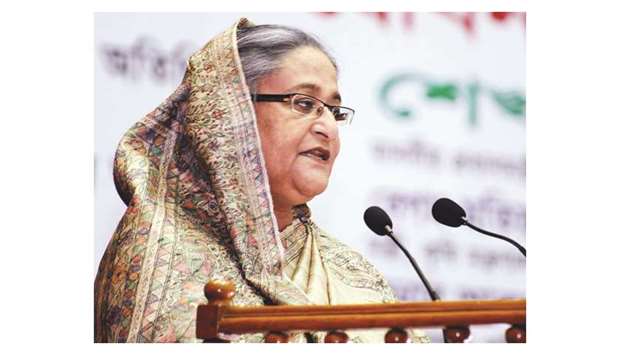She launched the programme by opening the distribution activities of the family silos at three sub-districts of Jhalakathi district through a videoconferencing from her official residence in Dhaka, new agency UNB reported.
The prime minister also exchanged views with beneficiaries of the family silos in Jhalakathi.
The plastic-made family silos have been distributed under ‘modern food storage facilities project’ which is being implemented by the food ministry with an objective to increase the grain reserve available to households to meet their post-disaster needs and improve the efficiency of grain storage management.
The government has taken a programme to distribute some 500,000 family silos in 63 sub-districts of the disaster-prone 19 districts under the project involving the total cost of $240mn (20bn taka). Of the cost, the World Bank finances $210mn.
The quality of foodgrain including paddy and rice, and seeds will remain intact if these are preserved in air-proof silos during any cyclone, tidal surge, flood and draught.
Each of the 70-litre capacity family silo can preserve 56kg rice and 40kg paddy.
The people can meet their demand of food during any disaster preserving food grains in the silo, which is made of food grade plastic. The weight of each silo is only 6kg.
The prime minister said the government will distribute the family silos in other
sub-districts in phases.
“We’ve taken the step. If it is implemented properly, I think we will never have food scarcity during any disaster,” she said.
Hasina suggested that the affluent families can also build the family silos at their own cost.
Noting that her government constructed some modern large silos in the country, she said the foodgrains will not decay in the silos for two-three years as there is ceiling system in the godowns.
She said the government has built the capacity of stocking 2.1mn metric tonnes food.
She said the government gave the highest importance to education as Bangladesh can only become a poverty and hunger-free country when it achieves 100%
literacy rate.
She expressed satisfaction as Bangladesh has graduated to a developing country and hoped the country would soon be a developed and
prosperous one.

